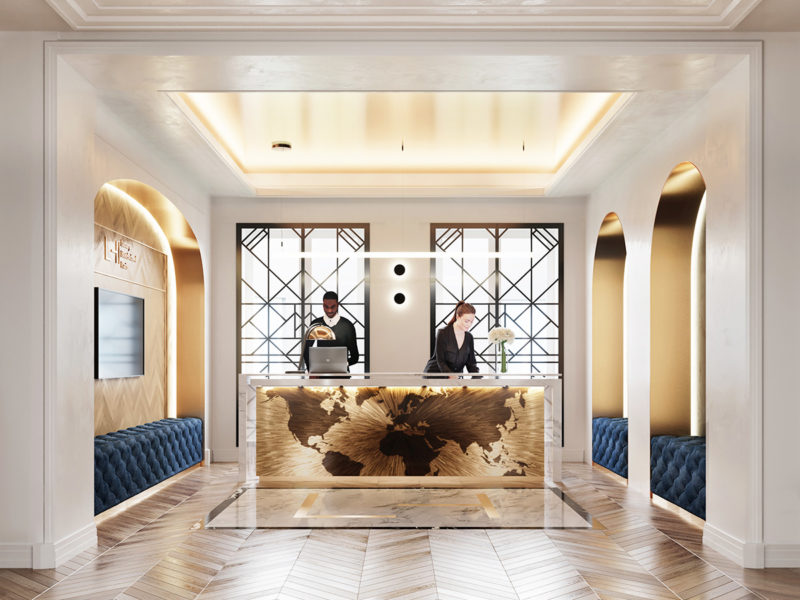
Chinese luxury consumption: between openness and communitarianism
Our Chinese luxury consumption Specialist Hua Qiu is just coming back from a 2 weeks journey through China. He tells us what is new, what has changed and what emerging trends should draw our attention.
« Chinese people are engaged in a race against the clock »
Oliver: « in our previous article you were telling me that China completely changed in the space of 30 years. People moved from a state of relative poverty to being able to invest millions of dollars in real-estate projects in the snap of a finger. Not everybody is rich but everybody can try. And your fellow citizen are engaged in a race against the clock: they want to take the best from these new rules of the game. Chinese people work all the time. 24/7. The word « closed » does not exist anymore in modern China. People only think about thriving and hoarding money. And if they have to break the law, copy products or work during nights and week-ends to achieve something, then they will do it. We discussed the very reasons of this frantic way of life and we assumed that some factors were acting as a catalyst. First, people still carry the memory of their recent poverty. Chinese capitalist turning point is only 20 years old and people still remember a time when they had just enough to live. They still feel insecure and they reassure themselves by hoarding money. Secondly, people are very very numerous. They have to fight for the best schools, the best jobs, the best opportunities and it leads to a very darwinistic society: people have to all the time compete against each other. Only the 15% best students will have good positions, the others will rot in second rate jobs in the country. And finally, we said that couples were prone to competition because they have to endure a lot of pressure: the whole Chinese society is organized around them. Everybody relies on them: parents, grandparents, children. Couples have to provide for everybody. That makes them open to try any solution to assume their duty. my next question would be: how does all this impact consumption? »
« People are yearning for modernity. And they only want what is best. That is the root of Chinese luxury consumption »
Hua: « My first answer would be that people are yearning for modernity. They are happy consumers. They want to enjoy themselves. It is very important. They work a lot but they also want to enjoy the benefits of all this hard work. They want to enjoy themselves and they want to show the world that they succeeded. They have a strong desire of recognition. They want to show to their relatives and to their acquaintances that they can afford a nice house or a big car. Again, in China, status is everything. You are judged on what you own. »
Oliver: « In our previous article, we also said that Chinese people only wanted what is best. »
Hua: « Yes. For instance, women do not care if their cosmetics are from Chanel or Dior. They buy it because it’s french, because it is the best lipstick or the best mascara that you can find. They do not buy it because it is expensive or because of the brand. Only because it is supposed to be the best product on the market. »
« Everything is accessible 24/7 »
Oliver: « Does this unbridled way of life impact the way services and products are delivered? »
Hua: « Totally. Everything is accessible at all times: shops are open 24/7, most websites deliver in 24h or less, you can access all the music you want on QQ, high speed trains are available every 30mn, you never book train tickets: you just hop on and buy a ticket on board. More and more companies also propose to relieve you from unpleasant duties like getting a visa. They facilitate the task. You give them all the documents and they take care of the tiresome paperwork for you. »
« People are travelling more and more. Ten years ago I had to come back to China to see my relatives and my friends. Now it is not uncommon to meet them by accident in the street in Paris »
Oliver: « And how do Chinese people perceive the rest of the world ? Europe in particular ? »
Hua: « Europe is perceived as beautiful but lethargic. Chinese people are engaged in such a frantic competition for success that they just do not understand how europeans can feel so relaxed. »
Oliver: « What is their degree of comprehension of our culture? »
Hua: « It is very limited for the moment. Capitalist turning point is 20 years old and tourism turning point is only 10 years old. People are just beginning to open themselves to new cultures. They only began to travel a couple of years ago. Secondly, travelling is expensive: Not everybody can afford plane tickets and a tour across Europe. Thirdly, when Chinese tourists come to Europe they often only visit the capitals: Paris, London, Rome, Berlin. They necessarily have a reduced vision of Europe. For instance, they visit Paris but they do not know that there can be very beautiful things outside the capital, in the country. But it is starting to change. Travelling has become more affordable and people come back. Ten years ago coming to Europe was the trip of a lifetime. People were coming once and they wanted to see as much as possible by fear they would never come again. Now people travel more and more. Ten years ago I had to come back to China to see my relatives and my friends. Now it is not uncommon to meet them by accident in the street in Paris. »
« Chinese people are persuaded french food is not to their liking. In fact they just have a poor experience in Paris. When I take them to good french restaurants, they are delighted »
Oliver: « You also told me there was a problem with the guides? »
Hua: « Yes. Tourist guides are often local Chinese people. For instance, in France guides are Chinese people who settled in your country a couple of years ago. Problem is they live amongst themselves. They are very communitarian. They do not know french culture very well. They do not know which restaurants are good or what bar they should pick. They do not help Chinese tourists have a vibrant experience of Paris. That is one of the reason my fellow citizens consider french food is not to their liking. Because when they come to France, guides take them to second rate restaurants. They have a poor experience. Food is certainly not the problem: when I take visitors to good restaurants they are surprised and delighted.
« Chinese are not nationalists. They are happy consumers. Sometimes more open to the rest of the world than Europeans are. »
Oliver: « Are there some cultural specificities or some nationalist inclinations that we should be aware of? »
Hua: « Chinese are not nationalists. They like their country but they are really open to the rest of the world. Sometimes more than Europeans. I told you: they are happy consumers. I have seen sometimes some nationalist driftings like people boycotting Japanese beer. But it is extremely rare. Most of the time, when there are problems, it is linked to cultural specificities. For instance, here in Europe, people do not understand that we need boiling water very often. For the tea and for the noodles. It is sometimes very hard for visitors to find boiling water in the hotels.
When it comes to Chinese luxury consumption and mass consumption, it is very much drawn to French luxury. But China also want to participate to the movement and create its own products based on its very own identity. China wants to be part of the game and express its identity. It is not a fight, more a participation.
Oliver: « Does it apply to technologies too? Are there some cultural specificities? »
Hua: « Not really. For instance, everybody uses WeChat. For most of us WeChat has become the center of our digital life. But it is not because the Chinese keyboard is better or because there are some specific features for us, Chinese people. It is just because it is very well done. Features are awesome and everybody is on it. »



